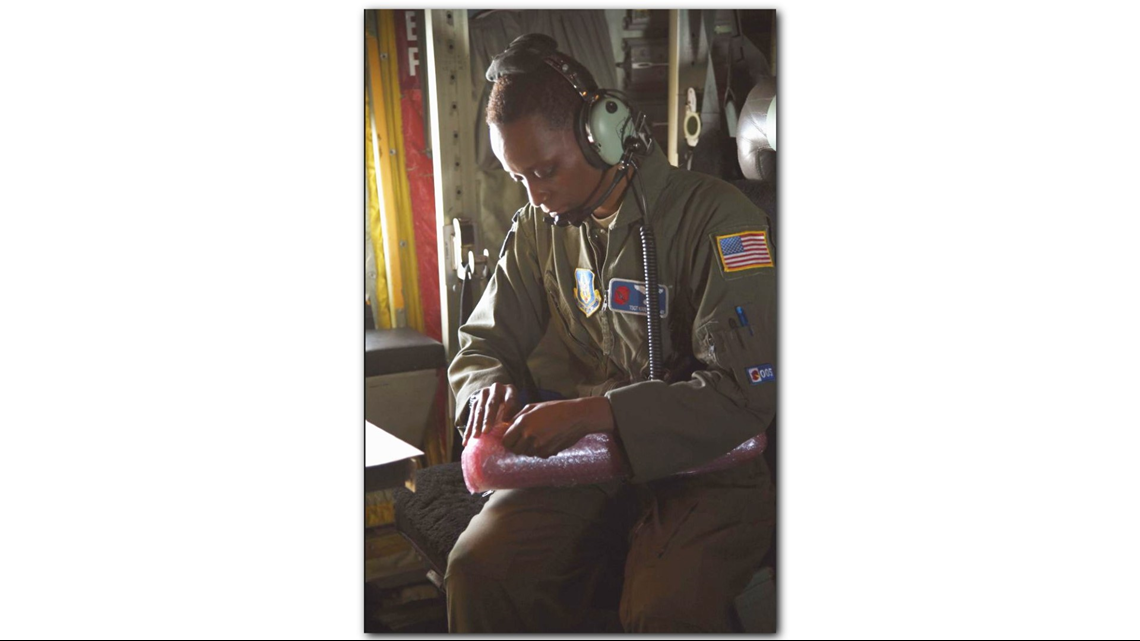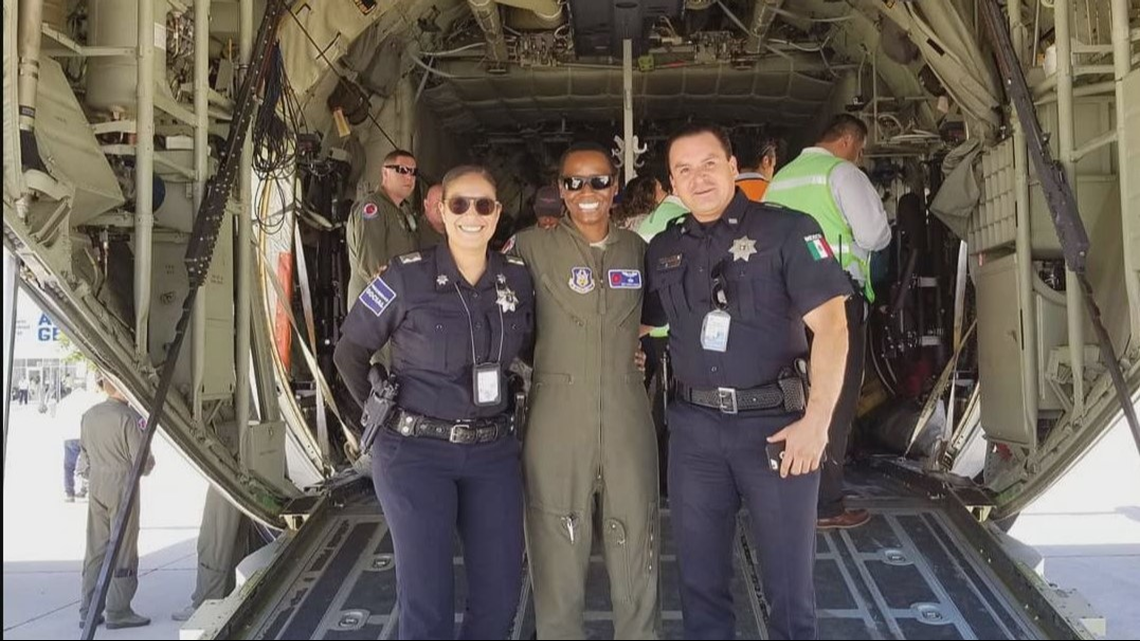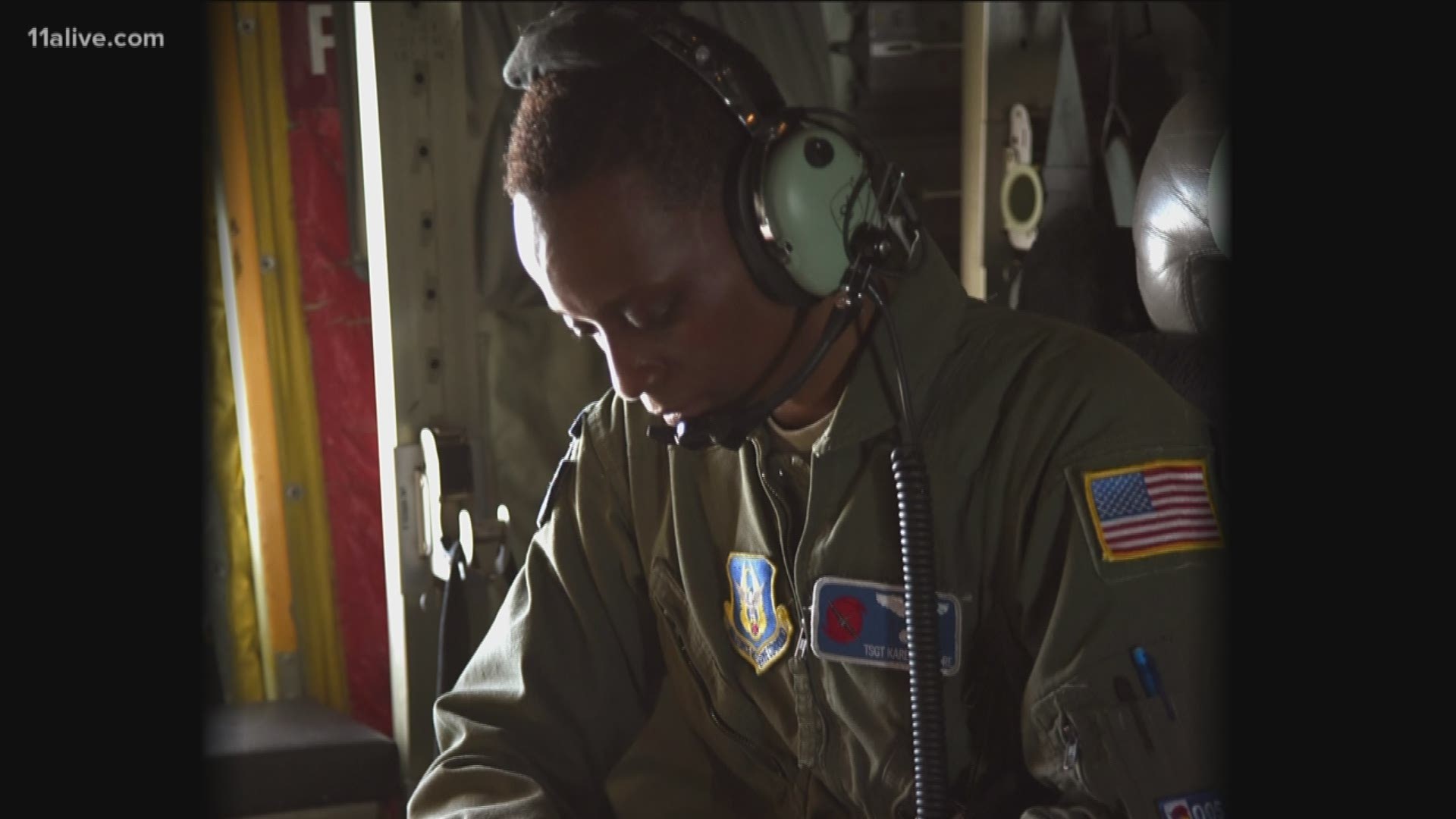Storm chasers are daredevils who are known to live on the edge – and U.S. Air Force Master Sergeant Karen P. Moore might be one of the bravest ones out there, as a hurricane hunter who flies into the eye of the world’s most powerful storms.
“It feels like a roller coaster ride. You never know what the storm is going to do,” Moore said. “We fly at 10,000 feet, so right through the storm.”
Moore said her mission, which involves dropping instruments into a storm’s eye for the National Hurricane Center from a C1-30 aircraft is not just part of her job – it’s a way to help save humanity.
“You get a feeling for the people who are on the ground. You’re flying through and you can see through the center, the lines and the waves,” Moore said. “We flew Hurricane Maria as the eye was hitting Puerto Rico. You could see all the surf going up onto the shore.”
Moore’s Squadron is the world’s only operational weather reconnaissance unit, based at the Keesler Air Force Base in Biloxi, Mississippi. The term “hurricane hunters” was first applied to its missions in 1946.
With less than 150 people on the Air Force 53rd Weather Reconnaissance Squadron, Moore said it’s been quite the journey.
Her motto, especially during Black History Month: “Go for what you want to do against all odds.” Moore has lived that motto every day by opening doors for future hurricane hunters.
“I am the first African American female hurricane hunter in the Air Force,” Moore said. “Actually, it was one of the other airmen in my squadron who said, ‘you know, I don’t think we’ve ever had an African American female hurricane hunter here.’ They actually submitted it to the historian for them to look it up and said, ‘oh, well, you’re the first!’ … I’m amazed. I said, are you sure? What took so long?”


Moore has always had the ability to see beyond convention. Raised in Norfolk, Virginia as the middle child with two brothers, she learned early how to hold her own.
“I would ride my bike like a Tasmanian devil,” Moore said. “The group that I rode with nicknamed me Taz, and it stayed with me.”
She joined the Junior ROTC program and entered the Marine Corps first. After eight years in, she spent eight years outside of the military and then joined the Air Force Reserves, as an aircraft electrical and environmentalist.
“Working on the flight line, dragging around tool boxes, fixing the planes … there was a Lieutenant Colonel who I just adored and I said to him … ‘hey, sir, one day, I want to fly with you.’ I was meaning that I wanted to be on the same plane as he was for a flight,” Moore said. “A few days later, I got an email saying for me to submit my resume, and there was a position for a load master.”
Her dream soon transformed into flying planes, instead of fixing them.
“He said, ‘what is it that you really want to do?’ And I said, ‘I want to fly.’ He said, ‘so, you’ll fly,’” Moore said. “It was a lot of hard work, it was painful. When you work hard for something, it doesn’t come easy. You appreciate it a lot more. I appreciate where I am today.”


As a hurricane hunter making history in the center of the storm, at 10,000 feet, Moore’s advice to others is to stand ground and never give up.
“Don’t even think about staying in the box. Get outside of it. Don’t worry what other people say, what other people think. If there’s something you really want to do, go for it,” Moore said. “You have to be able to hold your own. I think that’s anywhere in the workplace for females. Especially when it’s competitive and male-dominated, you just have to hold your own and stand your ground. You’re a team player.”
MORE ON BLACK HISTORY MONTH |

